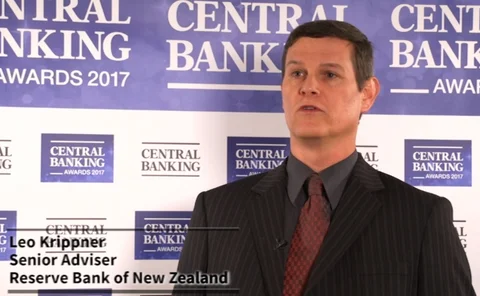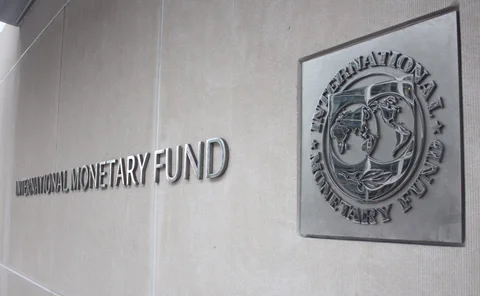Economics
Construction underway on Philadelphia Fed data centre
Federal Reserve Bank of Philadelphia publishes annual report; data centre approved in June 2016 will offer access to range of granular datasets
Korean governor outlines limitations of GDP as economic indicator
GDP does not “fully capture” income or wealth distribution; Lee Ju-yeol offers alternatives based on microdata and other macroeconomic indicators
RBNZ’s Krippner: term structure models can make for better policy
Central bank economist talks about his work on modelling monetary policy at the zero lower bound, and what comes next
Sri Lanka must be more competitive, central bank argues
Annual report for 2016 proposes host of reforms for improving Sri Lanka’s global competitiveness, warning country missed “many” opportunities to become developed nation
Long-run rates have been lower – Chicago Fed economists
Economists note the long run downward trend among G7 countries has reversed in the past, suggesting it could do so again
PBoC’s Zhou: 6.5% growth target is ‘within reach’
Governor says he believes China’s growth target is attainable, as he urges countries to remain open to trade and investment
Thinking on global capital flows is muddled – BIS’s Shin
BIS head of research says policies to guard against excess global liquidity should look at underlying causes, not symptoms such as capital flows; Fed’s Fischer acknowledges policy spillovers
Type of uncertainty matters for modelling – Norges Bank paper
Author develops method to “disentangle” various forms of uncertainty, finding they can have good and bad effects
Fed paper seeks better forecasts from information inefficiencies
Paper finds it is difficult to build a better forecast on the basis of deviations from rationality in surveys, implying such inefficiencies are not “economically meaningful”
IMF remains gloomy on Brexit as UK heads for snap election
Maurice Obstfeld admits IMF was overly pessimistic on consumer response to Brexit, but says supply shock could still bite; global outlook more positive
Paper examines how sticky investment prices affect DGSE model
Findings bring the model in line with growth accounting exercises, the researcher says
BoJ paper sketches ‘vicious circle’ behind productivity traps
“Lacklustre” economic reforms and firms’ unwillingness to innovate may create a “negatively reinforcing” loop, the authors warn
Technology driving inequality in advanced economies – IMF
Technology plays “dominant role” in explaining falling labour share of income in advanced economies, study finds; globalisation more important for emerging markets
RBNZ paper develops ‘intuitive and reliable’ output gap measure
Authors turn to a “Beveridge-Nelson filter” to produce an output gap estimate that performs better than those produced by other filtering techniques
Bank of Finland publishes China and Russia forecasts
Chinese targets “encourage data manipulation”; Russia stalls on structural reforms
BoJ builds on BIS banking statistics
Researchers break down the statistics further, shedding new light on patterns of cross-border banking
Be careful of using swaps to track inflation expectations, analyst says
Be careful of using swaps to track inflation expectations, analyst says
Brazil can no longer rely on consumption for growth – paper
IMF paper highlights need for Brazil to switch to investment-led growth model as infrastructure caps threaten productivity and competitiveness
Spanish paper models effects of European ‘fiscal delegation’
Supranational fiscal authority would improve welfare, authors argue
Financial constraints fuel price mark-ups, Italian paper finds
Researchers use data on Italian economy in 2010 to 2013
Bank and capital market financing not created equal – BIS paper
Substituting bank loans for non-bank finance after a shock appears to have a negative impact on the economy, authors find
Commodity prices impact the probability of project completion in Peru – paper
BIS paper examines how a drop in oil prices affects the timing and completion of investment projects; results show mining sector in Peru is particularly sensitive
Schembri: mix of factors holding back Canadian investment
The outlook is improving, the deputy governor says; openness to trade and immigration are likely to boost growth
BoE paper: ‘imperfect common knowledge’ implies Taylor principle need not hold
It is not strictly necessary for a central bank to respond to temporary deviations of the economy from trend, paper finds; result challenges findings such as ‘Neo Fisherism’























